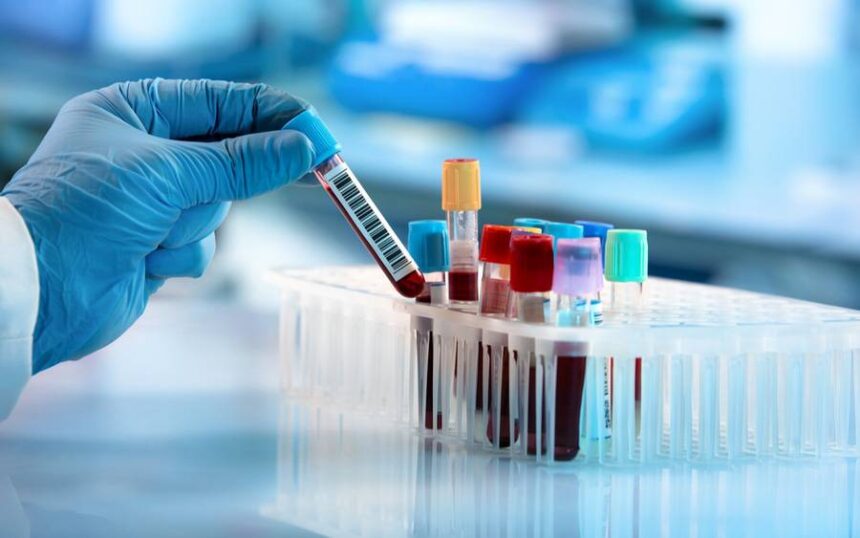Blood test results can look like a jumble of numbers and abbreviations. Understanding them can help you take control of your health and identify any problems early.
Introduction
For many adults, a blood test is a standard part of an annual check-up or a step in diagnosing symptoms. However, when the findings arrive, they frequently appear to be a tangle of medical codes and numbers that make little sense without an explanation from a doctor.
While your healthcare provider is the best person to interpret your results, knowing the basics of common blood tests can help you become a more educated participant in your own care.
This knowledge can also help you see patterns over time, make healthier lifestyle choices, and ask the proper questions during medical checkups.
Why Understanding Your Blood Tests Matters
Blood tests are among the most essential diagnostic tools in modern medicine. They can detect early indicators of diabetes, heart disease, anemia, infections, and even certain cancers, often before symptoms show.
Understanding your results does not imply self-diagnosis, but it does provide insight into how your body is functioning.
This knowledge promotes proactive health management, ranging from modifying food and exercise routines to scheduling follow-up testing when something appears strange.
Common Types of Blood Tests for Adults
These tests provide the foundation for routine adult health screenings and illness detection.
Complete Blood Count (CBC)
A complete blood count (CBC) evaluates a variety of blood components, including red blood cells (which transport oxygen), white blood cells (which fight infection), and platelets.
Abnormal results may indicate anemia, infection, inflammation, or blood clotting issues. For example, low red blood cell counts may indicate iron deficiency, whereas high white blood cell counts may indicate infection.
Basic Metabolic Panel (BMP) or Comprehensive Metabolic Panel (CMP)
These panels detect glucose (blood sugar), calcium, electrolytes (such as sodium and potassium), and indicators of kidney and liver health.
High blood sugar can indicate prediabetes or diabetes, but high liver enzyme levels may indicate liver stress or illness.
Lipid Panel
This test measures both cholesterol and triglycerides. High LDL (“bad” cholesterol) and low HDL (“good” cholesterol) levels raise the risk of heart disease.
High triglycerides can increase cardiovascular risk and are frequently associated with food, weight, and blood sugar levels.
Thyroid Function Tests
These monitor hormones such as TSH (thyroid-stimulating hormone), T3, and T4. Abnormal results could indicate hypothyroidism (underactive thyroid) or hyperthyroidism (overactive thyroid), both of which can impair metabolism, energy, and mood.
MUST READ:10 Screenings You Need When You’re 50+
How to Interpret Your Blood Test Numbers
Every blood test includes a “reference range” , the set of numbers deemed typical for healthy persons. If your findings fall outside of these ranges, it does not necessarily indicate that you have a major health concern.
Changes in hydration, food, stress, or recent activity can all have an impact on your results. For example, significantly raised liver enzymes could be the result of a hard workout or alcohol consumption the night before.
It is critical to discuss any abnormal results with your doctor, who will determine whether more testing or treatment is required.
Patterns and Trends Matter More Than One-Off Results
Rather than relying solely on individual exam results, consider patterns throughout numerous tests.
For example, a progressive rise in fasting blood sugar over several years may indicate insulin resistance, even if your levels remain within the “normal” range.
Similarly, a continuous reduction in hemoglobin may indicate chronic anemia, necessitating additional research. Keeping personal records of your outcomes allows you to see trends and make lifestyle changes sooner.
Factors That Can Affect Blood Test Results
Certain circumstances can cause temporary changes to your blood test results. Failure to fast before a cholesterol or glucose test can result in erroneously high findings.
Dehydration can concentrate your blood, impacting salt and renal function parameters. Medications, supplements, alcohol, and strenuous physical exercise can all influence findings.
Stress and lack of sleep can also have an impact on hormone-related blood indicators such as cortisol levels. For the most accurate results, always follow your provider’s preparation instructions and indicate any recent changes in habits or medications.
When to See a Doctor About Your Blood Test Results
If you receive your blood test results and find substantial abnormalities or if your doctor expresses concern it’s critical to follow up right away. Seek medical attention if you are experiencing:
- Results are far outside the reference range for critical health markers.
- Consistent aberrant outcomes throughout many testing.
- Symptoms include exhaustion, unexpected weight changes, prolonged pain, and irregular bleeding.
- Despite your doctor’s initial explanation, you’re still unsure what your results signify.
Final Thoughts
Blood test results are an excellent tool for evaluating your health, but they are not intended to substitute a professional diagnosis.
By knowing the fundamentals, you will be able to recognize early warning signals, better grasp your doctor’s advice, and make better lifestyle decisions.
Over time, this knowledge will enable you to take an active role in safeguarding your health and avoiding future disease.


